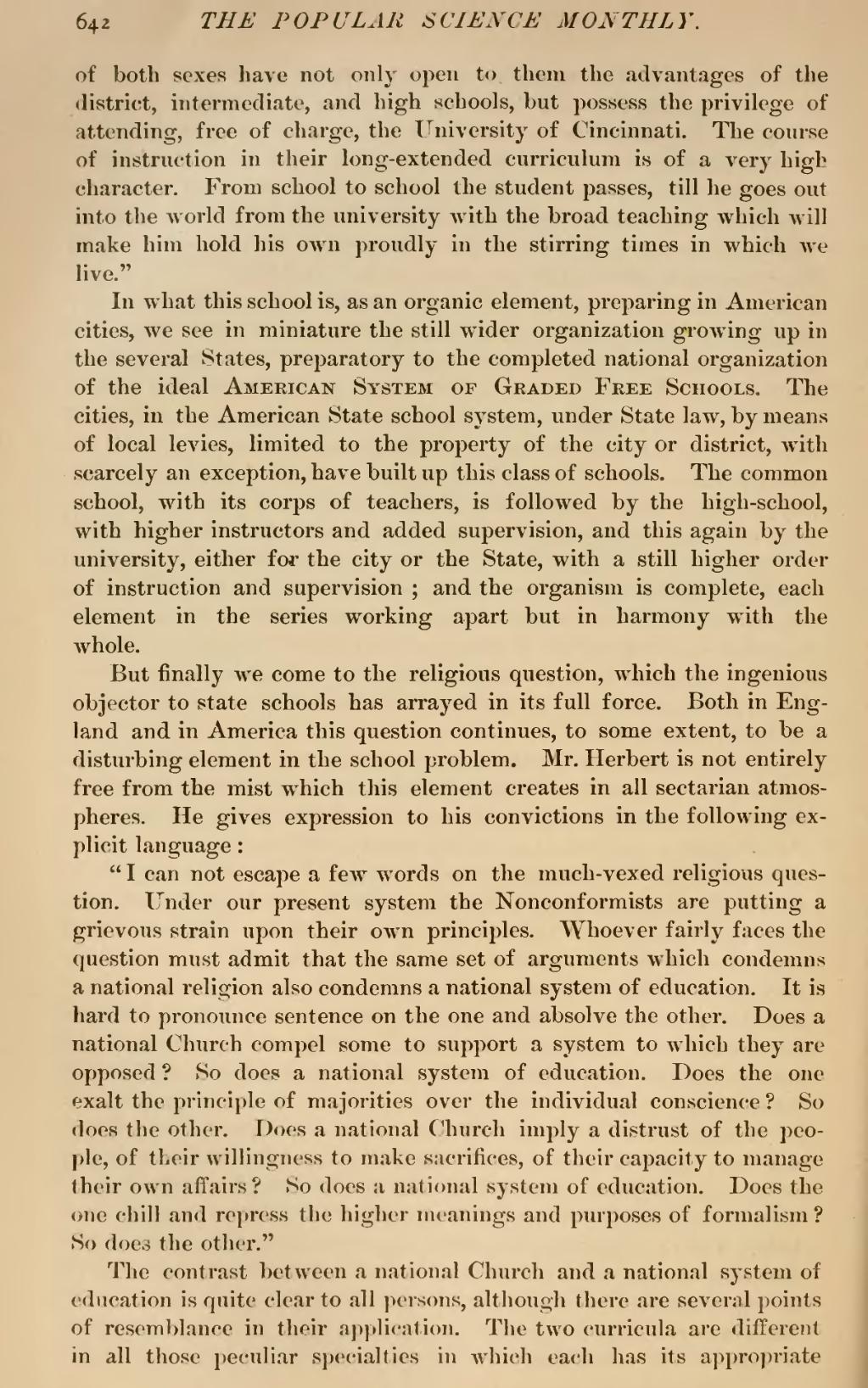of both sexes have not only open to them the advantages of the district, intermediate, and high schools, but possess the privilege of attending, free of charge, the University of Cincinnati. The course of instruction in their long-extended curriculum is of a very high character. From school to school the student passes, till he goes out into the world from the university with the broad teaching which will make him hold his own proudly in the stirring times in which we live."
In what this school is, as an organic element, preparing in American cities, we see in miniature the still wider organization growing up in the several States, preparatory to the completed national organization of the ideal American System of Graded Free Schools. The cities, in the American State school system, under State law, by means of local levies, limited to the property of the city or district, with scarcely an exception, have built up this class of schools. The common school, with its corps of teachers, is followed by the high-school, with higher instructors and added supervision, and this again by the university, either for the city or the State, with a still higher order of instruction and supervision; and the organism is complete, each element in the series working apart but in harmony with the whole.
But finally we come to the religious question, which the ingenious objector to state schools has arrayed in its full force. Both in England and in America this question continues, to some extent, to be a disturbing element in the school problem. Mr. Herbert is not entirely free from the mist which this element creates in all sectarian atmospheres. He gives expression to his convictions in the following explicit language:
"I can not escape a few words on the much-vexed religious question. Under our present system the Nonconformists are putting a grievous strain upon their own principles. Whoever fairly faces the question must admit that the same set of arguments which condemns a national religion also condemns a national system of education. It is hard to pronounce sentence on the one and absolve the other. Does a national Church compel some to support a system to which they are opposed? So does a national system of education. Does the one exalt the principle of majorities over the individual conscience? So does the other. Does a national Church imply a distrust of the people, of their willingness to make sacrifices, of their capacity to manage their own affairs? So does a national system of education. Does the one chill and repress the higher meanings and purposes of formalism? So does the other."
The contrast between a national Church and a national system of education is quite clear to all persons, although there are several points of resemblance in their application. The two curricula are different in all those peculiar specialties in which each has its appropriate
